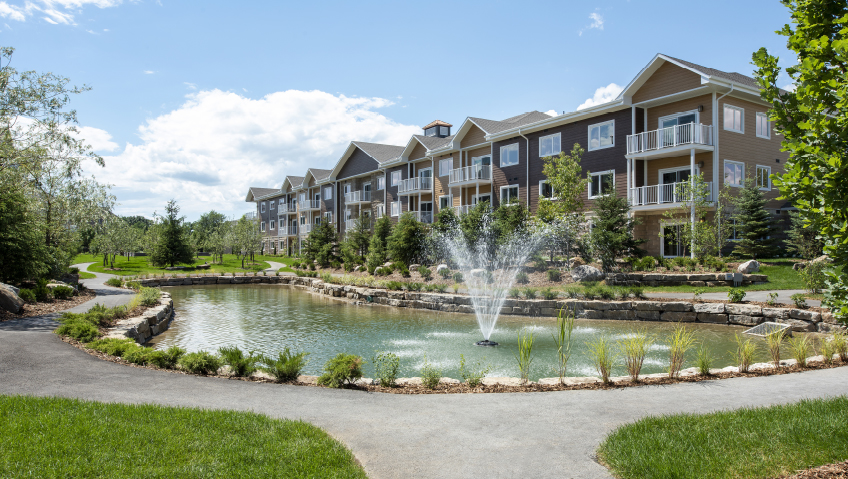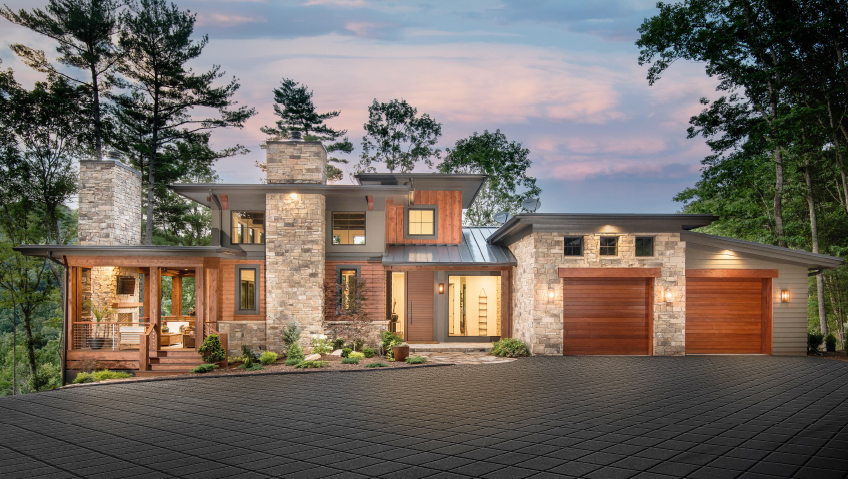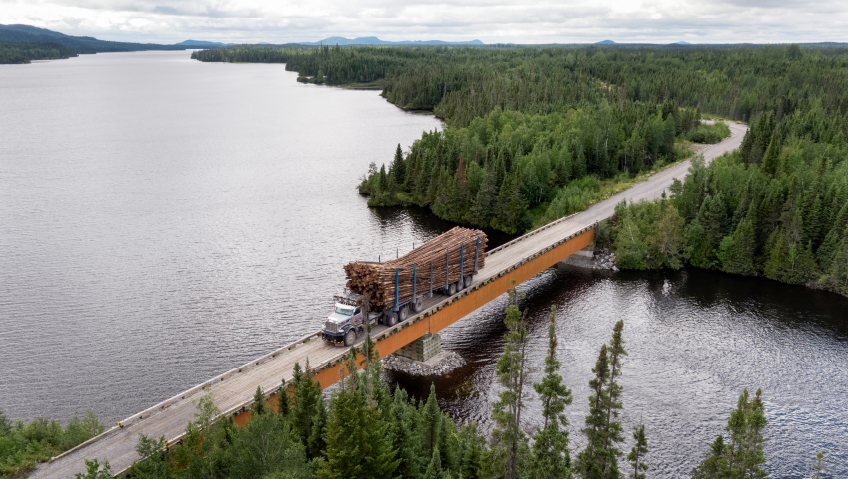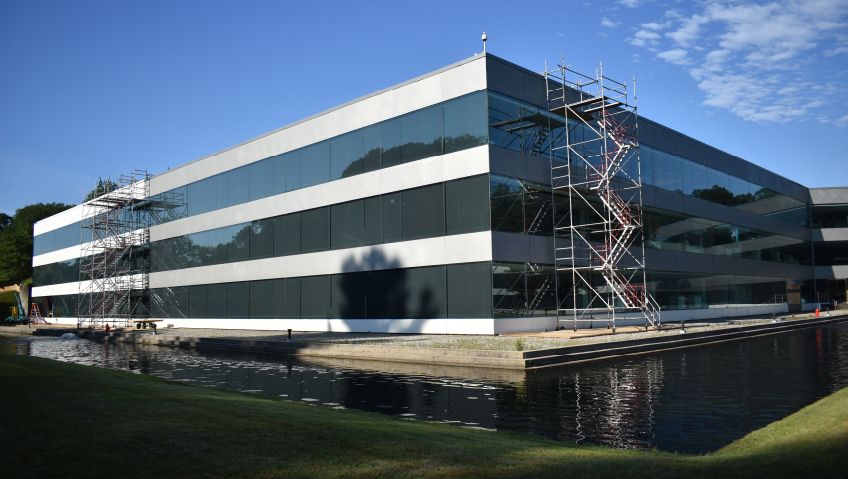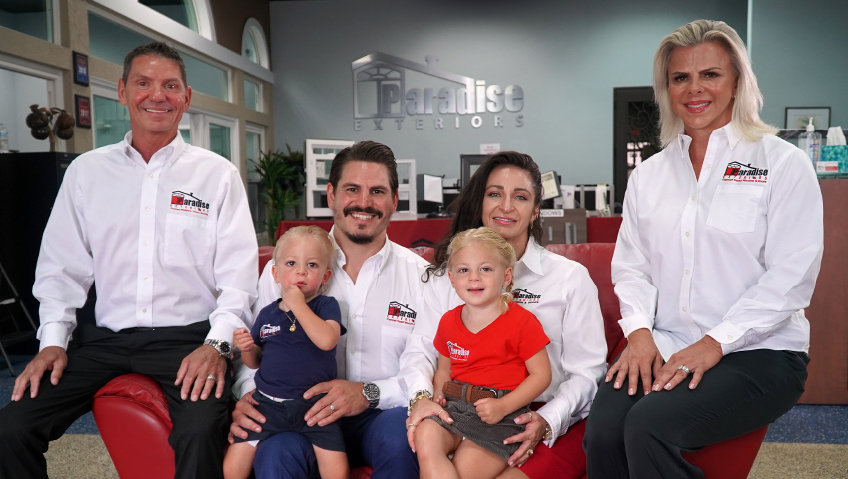Talking about the emerging energy-efficient technologies available back in the 1980s and ‘90s, Michael Fischette, P.E., says that at the time, it was “a new frontier”.
Then working for a very large power plant engineering and construction company, he designed and started up nuclear, coal, and natural gas power plants, many of them billion-dollar-plus projects. This experience not only gave him an understanding of the inner workings of large-scale engineering and construction projects but also of how much the power plant industry was changing.
Along with investors, Fischette founded Concord Engineering Group, Inc. in 1989. The fledgling company held onto its big power plant clients at the beginning, but, “big central power plants weren’t necessarily the market for us,” says Fischette.
The turn to emerging technologies
The company started moving toward change, embracing emerging technologies—in Fischette’s words, “exploring the other side of electric meters and gas meters,” and not building interiors. This included energy-efficiency technologies like heating, air conditioning, lighting, and pumping.
“There were many new emerging markets and industries developing, and we felt that’s where the future was,” says the company founder and Chief Executive Officer. “These projects were more granular than a $1 billion power plant, so it was easier to gain experience while developing a wider client base.”
Since the cycle of these projects was relatively short, Fischette and his team quickly discovered what worked and didn’t work, and were not tied to any one client, which meant Concord could diversify. “As a small company, you could work with many different clients, and not feel so specialized in terms of your revenue stream. It was a really exciting time for us.”
Sustainable from the start
Fischette’s consuming interest in energy efficiency grew. He pondered on what he could also do for buildings to make them safer, operate at a lower cost, and be better for the planet. With the way things have developed in the 34 years since Concord Engineering Group was created, the word sustainability means much more than just energy efficiency, he says.
“Global energy independence, climate change, and the need for renewables are what matter today. For example, when we tell clients that we designed earth-coupled geothermal heating and cooling systems in the early ‘90s, it confuses them. Most think it’s a new technology.”
Today, Concord offers energy and management services, commercial engineering, building and infrastructure commissioning, health and science, and power engineering / chilled water and steam. The company’s many successes over its three-plus decades are the result of hard work, vision, and plenty of persuasion.
In the early days, not much technology was aimed at energy sustainability, and there were few suppliers. Despite the benefits of greener technologies, not all clients were swayed by talk about renewable energy, microgrids, geothermal heating and cooling, or the need to curb carbon emissions to reduce global warming.
By his estimates, one out of ten clients recognized the growth potential. “We had to convince people these technologies saved energy,” says Fischette, “and if you even did save energy, you couldn’t track it as well as you can today.”
Once projects were underway, it soon became clear the results were worth it. Soon, Concord began attracting customers embracing its technologies and solutions, education in particular. School boards and colleges understood energy-saving calculations and were even conducting similar research themselves in some cases.
“That was sort of the kickstarter, and I think you see that a lot today,” says Fischette. “Most institutions—colleges, teaching hospitals—that’s where innovation happens. That foot in the door for energy efficiency was what led us to grow our engineering expertise in the design of systems for new buildings. If an architect or developer was looking to put together a design team to build a new facility, we were now becoming accomplished in all the building systems, and MEP&F [mechanical, electrical, plumbing, and fire protection].”
Multiple markets
Today, MEP&F are the primary skill sets of Concord’s engineering department, which maintains a strong focus on building systems. The company has become proficient in designing systems for hotels, casinos, schools, hospitals, and everything in between.
A combination of a construction boom in education and not enough engineers to design systems has opened plenty of opportunities. Concord has successfully brought on competent engineers with expertise in designing new construction or retrofitting old buildings.
“Having all that knowledge—knowing what energy costs would be, what those systems are, and realizing what the better technologies are—is giving us an edge,” says Fischette.
Although there were other competitors in the building design industry at the time, most of them were still using older, energy-inefficient lighting and heating technologies, while Concord was active in geothermal heating and cooling. “Most of my clients don’t believe that we were doing those systems 30 years ago,” he says.
For Fischette, his greatest source of pride is Concord’s incredible reach across many markets and industries, which is also most perplexing to its clients, who see a firm of only 100 persons, although growing.
Today, Concord Engineering has national brand recognition in skill sets such as Microgrids and gaming / hospitality facility engineering design; however, many of its skill sets still haven’t reached the national market.
The company has a broad portfolio from its Energy Advisory Group which manages the supply of electric and gas commodity contracts to its Building Commissioning Group, which ensures that clients’ building systems are designed, installed, and operating to their highest potential.
The Engineering Groups are divided into four sectors: Commercial Building Mechanical Electrical Plumbing (MEP); Power, Infrastructure and Substations; Health + Science MEP; and Energy Efficiency / Decarbonization. “Each of our Engineering sectors has different cultures, engineering pedigrees, and different clients, which makes us very valuable to clients where there’s an overlap in skills needed,” says Fischette.
Currently, Concord has four offices. This includes Voorhees NJ, Philadelphia, PA, Atlantic City, NJ, and Princeton, NJ, with future offices in the works. And with professional engineering licenses in 50 states, the company can perform any services across the United States and North America and has completed several projects in Europe and the Middle East.
From inception to completion
As a full-service energy asset management firm, the Concord Engineering Group works with clients through the full duration of a plant, facility, or campus life cycle. This generally starts with energy and infrastructure master planning, moving on to developing ‘cost and saving’ modeling to support investment.
Once projects are funded, the company moves into engineering design construction support and commissioning. “Our goal is to be a lasting provider of solutions through the entire life cycle of the project because what might have worked decades ago doesn’t necessarily work in today’s climate,” says Fischette. “Electrification of buildings and vehicles, for example.”
With a client focus on private, institutional, and public sectors—typically larger campus or bigger-scaled buildings—Concord strives to connect on a corporate or system-wide level to encourage clients and employees to develop trusting relationships. In that way, repeated work is less of a hurdle, since the company isn’t introducing its people to the client’s specific needs for every project.
“As a strength, I would say we have two defining qualities: a deep pedigree to support the tasks at hand, and responsiveness, which we think is the most important quality a consulting firm can have,” comments Fischette.
Changing times
As a veteran of the energy industry, Fischette has seen the global energy sector grow and adapt to new technologies. Changes in the world’s energy sectors are often the result of not only innovation, but environment, politics, and finance. These include the company moving toward onsite generation in the early 2000s, at the time of the Enron debacle.
In 2012 Hurricane Sandy caused significant damage to New York and New Jersey, and Hurricane Maria in 2017 hit Saint Croix and Dominica, decimating much of Puerto Rico’s electrical grid. These disasters and others made governments and individuals alike re-examine power plants, identify the need for on-site generators to provide energy resiliency for hospitals and mission-critical facilities, and microgrids to meet future demands.
These natural disasters saw Concord become involved in creating solutions and were a big part of the company’s growth.
“There were multiple grid outages and unreliability of the electric grid that were catalysts,” says Fischette. “People thought of diesel at the time, but they found that if you ran the technologies on natural gas, you could be very efficient, and they provided returns on investment.
“There was also heat recovery. Instead of all that hot exhaust gas going up the stack, we were able to pull heat from it—free heat!—and heat buildings with it.”
Diverse projects
Frequently taking on projects of up to a billion dollars, Concord Engineering stays in character and continues to innovate. One of its most recent large-scale works is the Bellwether Project. It’s an adaptive reuse of a century-old oil refinery, closed since 2019, transforming it into a logistics and lifestyle campus. Formerly the PES refinery in South Philadelphia, the site is being redeveloped by HRP (formerly Hilco Redevelopment Projects).
“Philadelphia is becoming one of the U.S. meccas of life science laboratory and gene research, so you see a lot of buildings being adapted,” says Fischette. Many are old offices or manufacturing buildings. Various plans were mooted to revive them as commercial offices before COVID, but the plans evaporated as people gave up offices for working at home. With high ceilings and extremely solid floors, these locations are ideal for heavy laboratory equipment.
Along with Bellwether, Concord is seeing many other adaptive reuse projects across the U.S., including massive, long-abandoned, coal-fired power plants and steel mills. They are being cleaned up or demolished, many repurposed as million-square-foot distribution and logistics centers.
In many cases, these sites require energy infrastructure master plans that allow them to have energy resiliency and de-carbonization technologies like massive rooftop solar and utilize them all in one system.
Looking back on his career in the energy sector and the company’s many accomplishments, Michael Fischette is eager to see what the future holds for Concord.
“This amazing, 100-person firm has a broad range of services that firms of 1,000 and 20,000 aspire to have,” he says. “Concord has everything from an energy advisory group that manages thousands of electric accounts and buys and sells electricity and manages commodities to engineering and healthcare, power and infrastructure, commercial buildings, some construction management, building commissioning and retro-commissioning, and making sure these buildings are operating the way they’re intended to,” he explains.
“We’ve got this whole spectrum, and I think that’s the big message: we are so broad in our expertise, and need to get the message out there so we can continue to grow.”


